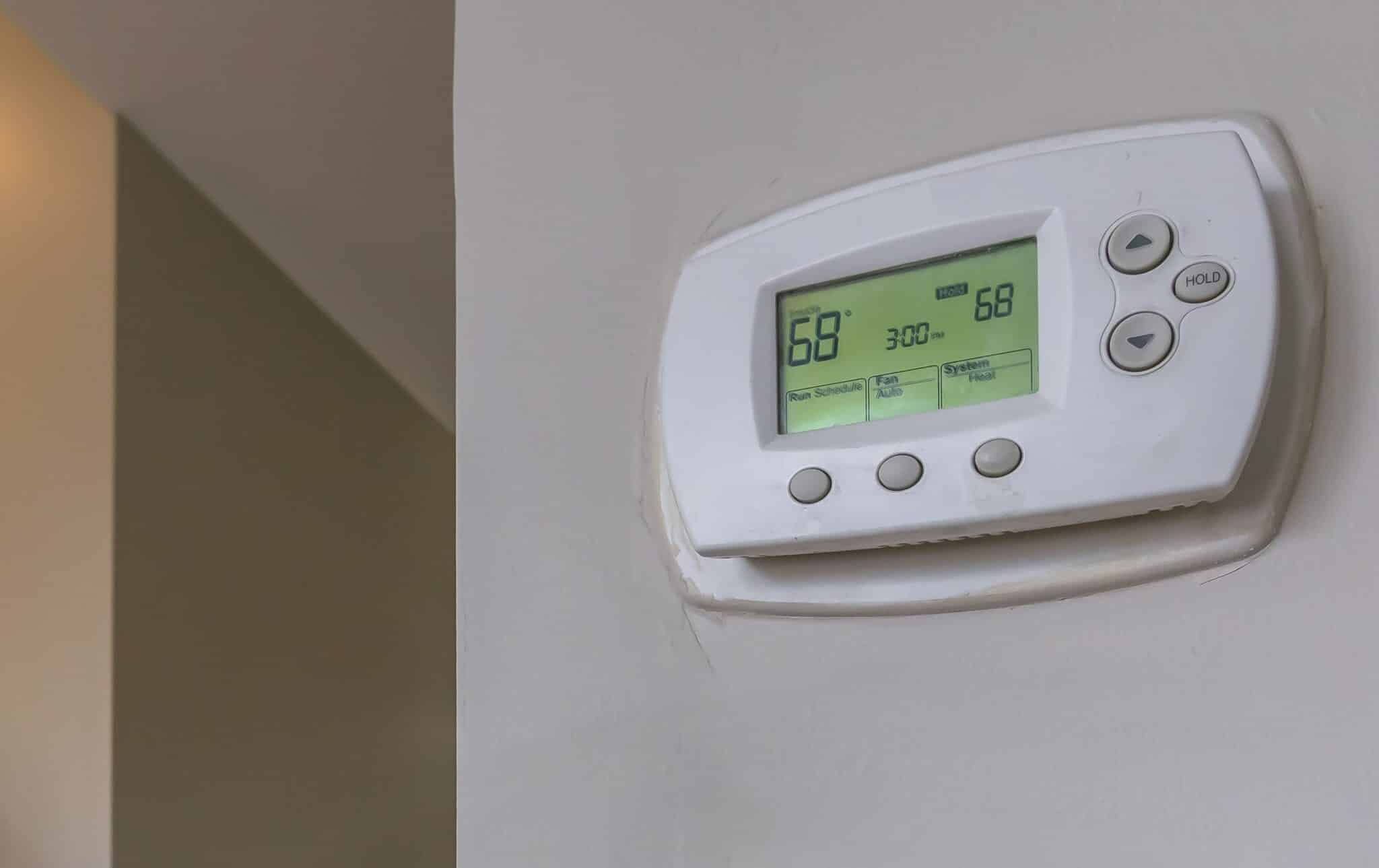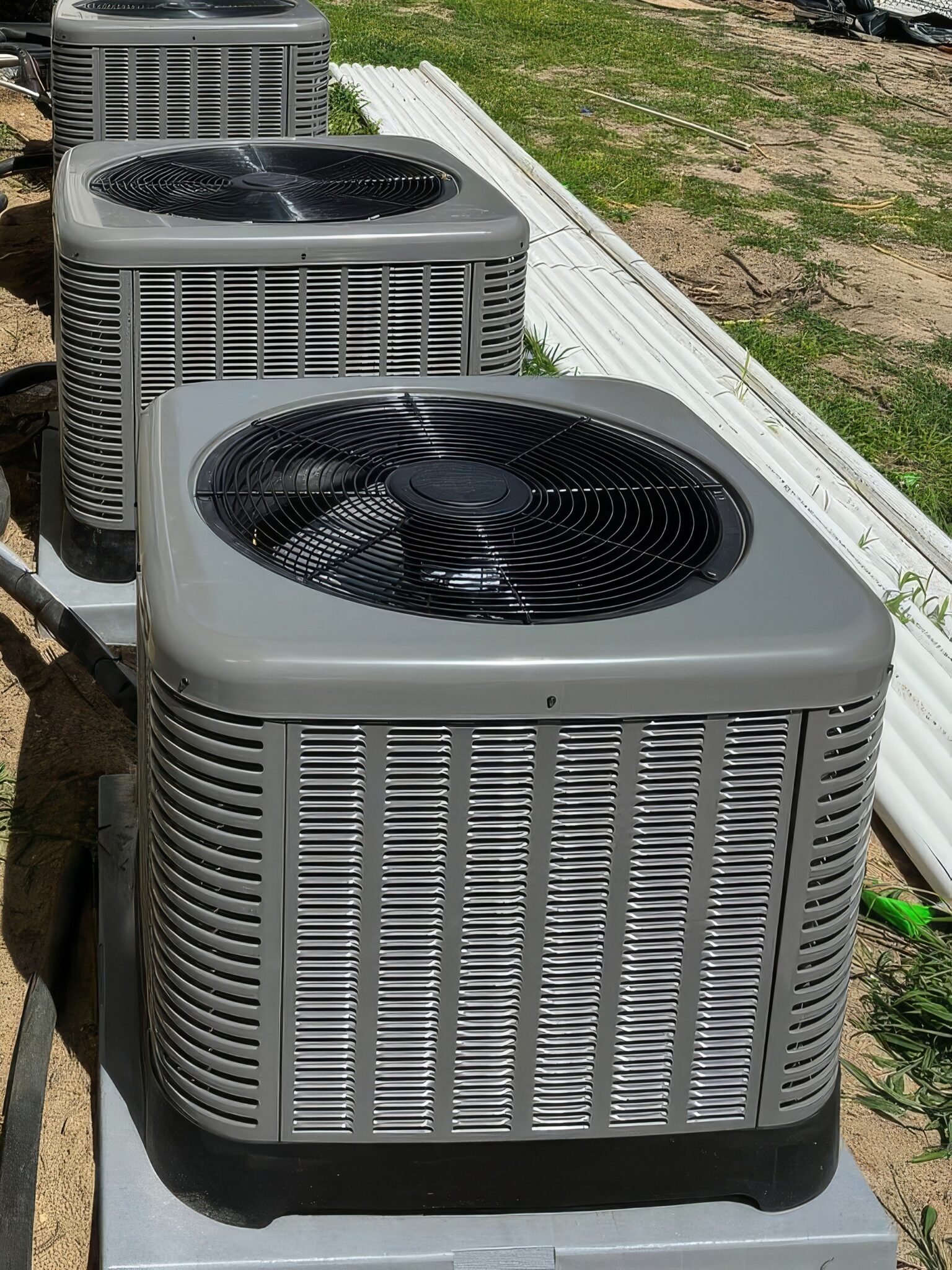Living in Brunswick or St. Simons Island means relying heavily on your HVAC system, especially during Coastal Georgia’s hot July. With soaring temperatures and thick humidity, your cooling system works around the clock. Unfortunately, this constant demand can shorten its overall lifespan without the right maintenance plan. That’s why understanding the HVAC system lifespan is so important for local homeowners.
Many people are surprised to learn just how much their climate affects their equipment. Salt in the air, high moisture levels, and relentless summer use create the perfect storm for wear and tear. Still, with the right care, your system can perform efficiently for years. That’s where smart strategies and seasonal checkups come in.
Planning ahead can save you time, money, and frustration when those inevitable issues arise. By recognizing early signs of wear and taking action, you extend the life of your system. Even small steps like filter replacements or routine inspections go a long way. It’s about being proactive rather than reactive.
This guide will walk you through everything you need to know about HVAC system lifespan. From local tips to expert insights, we’ll help you make the most of your investment.
Understanding HVAC System Lifespan Basics
Understanding the basics of HVAC system lifespan involves recognizing the various elements that contribute to the wear and tear of these units. In Brunswick, GA, the blend of high humidity and salt air from the coast can accelerate corrosion in HVAC components, potentially reducing their operational life. Regularly cleaning and inspecting these systems for signs of rust or damage is crucial. This proactive approach can help mitigate the effects of the local environment on the system’s longevity.
In addition to environmental factors, the quality of the installation plays a significant role in determining the lifespan of an HVAC system. A system that is properly sized and installed by professionals is less likely to experience premature failures. Homeowners should ensure that their HVAC systems are installed by reputable technicians. This ensures that the system operates efficiently, which in turn can extend its useful life.
The frequency and quality of maintenance are also pivotal in maximizing HVAC system lifespan. Homeowners in St Simons Island, GA, benefit from scheduling regular maintenance checks to identify and fix minor issues before they escalate into major problems. Tasks such as replacing air filters, cleaning ducts, and checking refrigerant levels can significantly improve system performance. These maintenance activities not only extend the system’s life but also enhance its efficiency and reliability.
Lastly, understanding how to use the HVAC system efficiently can contribute to a longer lifespan. Avoiding overworking the system by setting reasonable temperatures and using programmable thermostats can prevent unnecessary strain. Educating oneself on the optimal operation of their HVAC system can lead to more effective use, which in turn supports a longer lifespan. By combining knowledge with action, homeowners can enjoy the benefits of their HVAC systems for many years.

Factors That Affect HVAC System Lifespan
Several factors directly influence the HVAC system lifespan, with usage patterns being a primary consideration. Homeowners in Brunswick, GA, often experience high demand on their systems due to the area’s climate. Efficient use, such as leveraging programmable thermostats, can reduce wear and tear. This smart approach ensures systems aren’t overburdened, promoting longer service life.
Another critical aspect is the system’s design and how well it fits a home’s specific needs. Incorrectly sized units for a house in St Simons Island, GA, for example, can lead to frequent cycling on and off. This not only strains the system but can also lead to unnecessary energy consumption. Proper sizing and installation by professionals ensure optimal performance and longevity.
The local environment plays a significant role in the lifespan of HVAC systems. In coastal areas, salt air can accelerate corrosion, while high humidity levels in Brunswick, GA, can contribute to system components wearing out more quickly. Homeowners can combat these effects through regular cleaning and preventive maintenance, keeping their systems running efficiently for longer.
Finally, advancements in HVAC technology have introduced features that can extend system lifespan. Modern systems come with improved diagnostics and energy-efficient designs that reduce the strain on components during operation. By choosing systems with these features, homeowners can significantly enhance the durability and reliability of their HVAC units, ensuring a comfortable home environment for years to come.
The Role of Regular Maintenance in Extending Lifespan
Regular maintenance plays a crucial role in enhancing the HVAC system lifespan. Homeowners in Brunswick, GA, can significantly benefit from scheduling annual inspections. These checks help identify potential issues before they escalate into major problems. By ensuring their system is running smoothly, residents can enjoy a comfortable home environment for longer.
Changing air filters regularly is another simple yet effective maintenance tip. This practice prevents the system from working harder than necessary, which can lead to wear and tear. Homeowners in St Simons Island, GA, find that clean filters also improve air quality in their homes. As a result, both the system’s efficiency and its lifespan see a positive impact.
Keeping the outdoor unit clean and free from debris is essential for maintaining optimal performance. Leaves, dirt, and other obstructions can hinder airflow and reduce the system’s efficiency. By clearing the area around the unit, homeowners ensure it operates under the best conditions. This attention to detail can extend the lifespan of the HVAC system.
Lastly, professional servicing is key to addressing complex system issues that homeowners might overlook. Technicians can perform in-depth checks and repairs that go beyond basic maintenance. This level of care ensures the system operates at peak efficiency. Adopting a proactive approach to maintenance allows homeowners to maximize their HVAC system lifespan, ensuring comfort and reliability for years to come.
How Installation Quality Impacts HVAC System Lifespan
The quality of installation is a critical factor that significantly influences the HVAC system lifespan. When professionals in Brunswick, GA, install an HVAC system, they ensure it is correctly sized and optimally placed to meet the home’s specific needs. This precision prevents the system from overworking, which can cause premature wear and tear. Proper installation lays the foundation for a system that operates efficiently, extending its service life.
In St Simons Island, GA, homeowners recognize the value of hiring experienced technicians for their HVAC installation. Expert installers not only understand local climate challenges but also how to best configure systems to withstand them. This expertise ensures that the HVAC unit is prepared to handle humid summers and mild winters without excessive strain. As a result, a professionally installed system can enjoy a longer lifespan, providing reliable comfort year after year.
Another aspect of installation quality is the thorough testing and adjustment of the system post-installation. Technicians should perform a comprehensive check to ensure every component functions as intended. This step is crucial for identifying any issues that could hinder performance or reduce the HVAC system lifespan. By addressing these early, homeowners can avoid future complications, ensuring their system runs smoothly from the start.
Lastly, proper installation includes educating homeowners on the optimal use and maintenance of their new system. Technicians in Brunswick, GA, and St Simons Island, GA, can provide valuable advice on how to maintain the system efficiently. This guidance helps homeowners play an active role in extending the HVAC system lifespan, from adjusting thermostats to scheduling regular maintenance checks. Through a combination of professional installation and informed homeowner practices, the longevity of HVAC systems can be significantly enhanced.
Seasonal Tips for HVAC Efficiency and Longevity
As seasons change in Brunswick, GA, adjusting your HVAC practices can significantly impact its efficiency and lifespan. In the spring, it’s wise to prepare your system for the summer’s heat by checking coolant levels and ensuring your AC is ready to work efficiently. This proactive step not only keeps your home comfortable but also prevents the system from overworking, which can shorten its lifespan.
During the hot summer months, setting your thermostat to a slightly higher temperature when you’re not home can reduce wear on your HVAC system. This small adjustment helps maintain a balance between comfort and efficiency, extending the system’s service life. In St Simons Island, GA, where summers can get particularly humid, using ceiling fans can aid in air circulation, reducing the need for constant air conditioning.
As fall approaches, it’s an ideal time to replace your HVAC filters and clear any debris from around the outdoor unit. Clean filters improve air quality and system efficiency, while removing obstructions ensures optimal airflow. These simple maintenance tasks prepare your system for the cooler months, ensuring it runs smoothly and efficiently.
With winter’s arrival, checking your system’s heating components and scheduling a professional inspection can prevent unexpected breakdowns. Keeping the heating system in top condition is crucial for those colder days, ensuring your home stays warm without overburdening the HVAC system. By following these seasonal tips, homeowners can enjoy a comfortable indoor environment year-round while maximizing their HVAC system lifespan.
When to Repair vs. Replace: Navigating HVAC Lifespan
Deciding whether to repair or replace your HVAC system is a pivotal choice for homeowners in Brunswick, GA. As your system ages, performance may decline, leading to frequent repairs. It’s essential to consider the HVAC system lifespan when facing persistent issues. If repairs become too common, replacement might offer a more reliable and efficient solution.
In St Simons Island, GA, environmental factors like humidity and salt air can accelerate wear on HVAC systems. When components start failing regularly, it’s a sign that the system may be reaching the end of its useful life. Evaluating the condition and efficiency of your system can guide you in deciding whether to invest in repairs or opt for a new installation.
Maintenance history plays a crucial role in this decision-making process. A well-maintained system may warrant repairs to extend its lifespan further. However, if maintenance has been neglected, resulting in severe wear and tear, replacement might be the more cost-effective option. This ensures your home remains comfortable without the constant worry of breakdowns.
Ultimately, the choice between repairing and replacing depends on the system’s current state and its potential for future reliability. Consulting with a professional can provide insight into the most practical path forward. They can assess the overall health of your HVAC system, helping you make an informed decision that balances comfort, efficiency, and longevity.
Innovative Technologies Prolonging HVAC System Lifespan
Innovative technologies are playing a crucial role in enhancing the HVAC system lifespan, offering homeowners in Brunswick, GA, advanced solutions to maintain their systems efficiently. Modern HVAC units now come equipped with features like smart thermostats and energy-efficient compressors that significantly reduce wear and tear. These advancements not only improve the system’s performance but also ensure it operates under less stress, contributing to a longer service life. By adopting these technologies, residents can enjoy a more comfortable home environment while benefiting from the extended durability of their systems.
In St Simons Island, GA, homeowners are finding that HVAC systems with variable speed motors and advanced filtration systems are setting new standards for longevity. These components adjust the system’s operation to match the home’s needs precisely, minimizing unnecessary strain. Additionally, better filtration means cleaner air and less buildup of harmful particles inside the system, further preventing premature wear. As a result, these technological enhancements are pivotal in pushing the boundaries of traditional HVAC system lifespan.
The integration of smart diagnostics in HVAC systems has revolutionized how maintenance is approached, offering a proactive strategy to extend their lifespan. These systems can now alert homeowners in Brunswick, GA, about potential issues before they escalate into significant problems. Early detection allows for timely repairs, preventing the kind of damage that could shorten the system’s life. This shift towards intelligent maintenance supports a longer-lasting HVAC system, ensuring it remains efficient and reliable over the years.
Finally, the impact of technology on HVAC system lifespan is evident in the energy management capabilities of newer models. In St Simons Island, GA, systems that can efficiently manage energy consumption not only lower operational costs but also reduce the overall load on the HVAC unit. This careful management of energy use means the system doesn’t have to work as hard, which in turn, can significantly extend its lifespan. Homeowners who invest in these technologically advanced systems can expect a more sustainable, efficient, and long-lasting HVAC solution for their homes.

Creating a Maintenance Schedule for Optimal Performance
To ensure your HVAC system in Brunswick, GA, maintains optimal performance, establishing a regular maintenance schedule is essential. This routine should include checking and replacing filters every few months to prevent dust and debris from impairing system efficiency. Such diligence not only enhances air quality but also contributes positively to your HVAC system lifespan. By keeping a close eye on this simple task, you can significantly reduce the strain on your unit.
In addition to filter changes, scheduling professional inspections at least once a year is crucial. These inspections allow technicians to identify and address minor issues before they escalate into major problems. For residents of St Simons Island, GA, where the climate can be particularly taxing on HVAC systems, these annual check-ups are vital. They ensure that your system is prepared to handle the seasonal demands without faltering.
Creating a maintenance schedule also involves paying attention to the system’s external components. Ensure the area around the outdoor unit is clear of leaves, dirt, and other obstructions that can hinder airflow and reduce efficiency. This practice not only supports the system’s performance but also extends its service life by preventing unnecessary wear and tear. A clean external unit operates more efficiently, putting less stress on the system as a whole.
Lastly, being proactive about your HVAC maintenance means staying informed about your system’s needs and how they may change with the seasons. Adjusting your approach to care for the system accordingly can make a significant difference. For instance, increasing the frequency of filter changes during high pollen seasons can prevent allergens from circulating through your home. By tailoring your maintenance schedule to fit both the system’s requirements and environmental factors, you can maximize the HVAC system lifespan, ensuring a comfortable and healthy home environment year-round.
Frequently Asked Questions
What is the average HVAC system lifespan?
The average lifespan of an HVAC system typically ranges between 15 to 25 years. Factors like regular maintenance, usage patterns, and the quality of the installation play crucial roles in determining its longevity. Proper care can significantly extend an HVAC system’s service life, ensuring it performs efficiently for years. Understanding these elements helps homeowners make informed decisions about their systems.
How can I extend my HVAC’s life?
To extend your HVAC’s lifespan, regular maintenance is key. Schedule annual check-ups with a professional to ensure it runs smoothly. Changing filters every few months also helps prevent blockages and maintains air quality. Lastly, keep the area around your unit clear of debris to allow proper airflow and reduce strain on the system. These steps can significantly boost your HVAC system lifespan, keeping your home comfortable for longer.
What signs indicate it’s time to replace my HVAC?
Knowing when to replace your HVAC is crucial for maintaining a comfortable home environment. If your system frequently needs repairs, it might be time for a new one. Another sign is if your energy bills are steadily increasing, indicating the system’s efficiency is declining. Uneven temperatures throughout your home can also suggest the system is no longer effective. Lastly, if your HVAC is over 15 years old, upgrading to a newer model could be more cost-effective and efficient in the long run.
How does maintenance impact HVAC system lifespan?
Regular maintenance plays a crucial role in extending an HVAC system’s lifespan. It ensures the system operates efficiently, preventing unnecessary strain and potential breakdowns. By catching issues early, technicians can prevent minor problems from becoming major ones. This proactive approach keeps your system running smoothly for years, maximizing your HVAC system lifespan.
What factors affect HVAC system lifespan?
Several factors play a pivotal role in determining the HVAC system lifespan. Regular maintenance tops the list, ensuring systems run efficiently and issues are addressed promptly. The quality of the initial installation also significantly impacts longevity, as improper setup can lead to frequent problems. Environmental conditions, such as extreme weather and humidity, can strain the system, affecting its durability. Lastly, the model and brand of the HVAC system can influence how long it lasts, with some designed for longer use than others.











